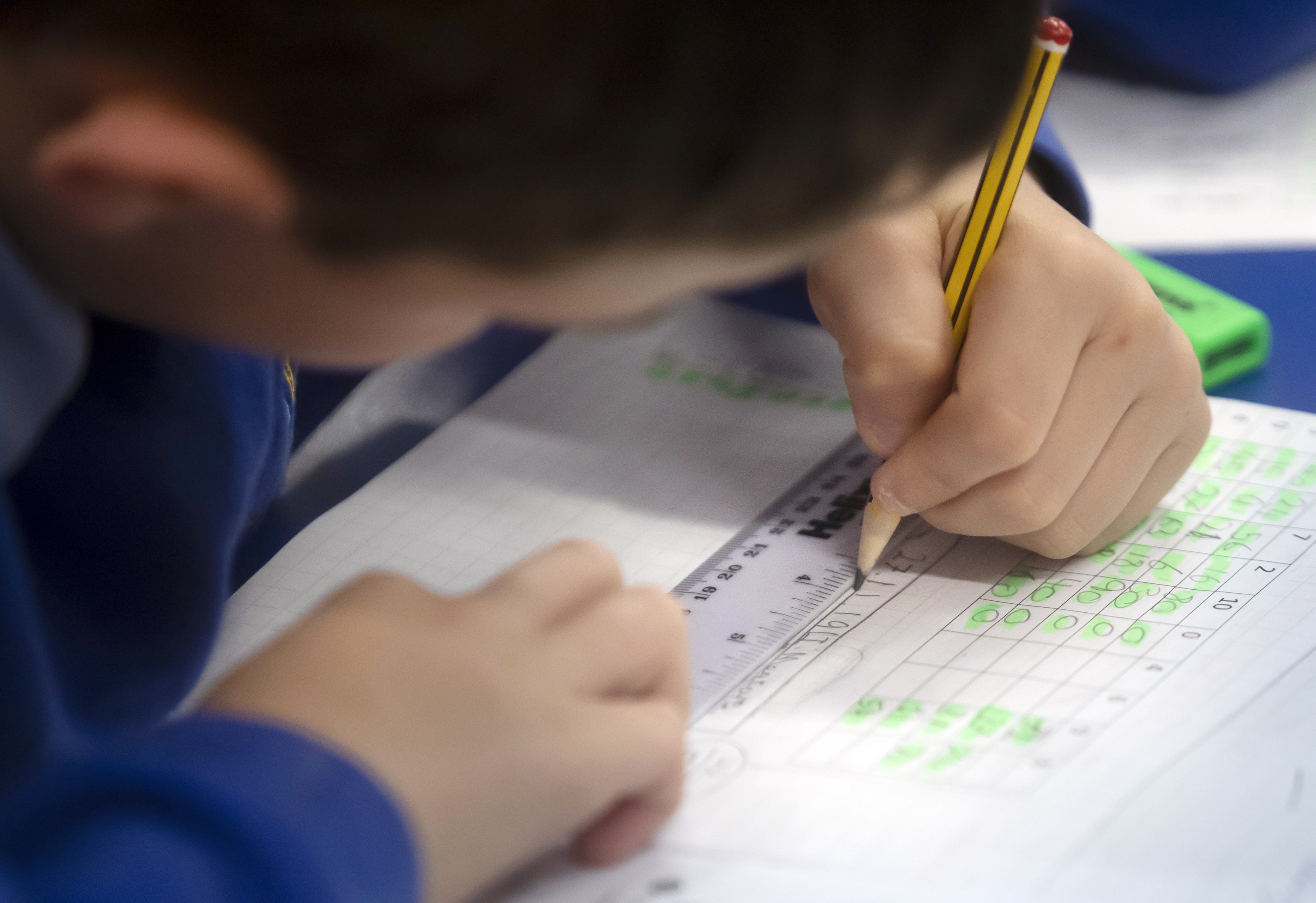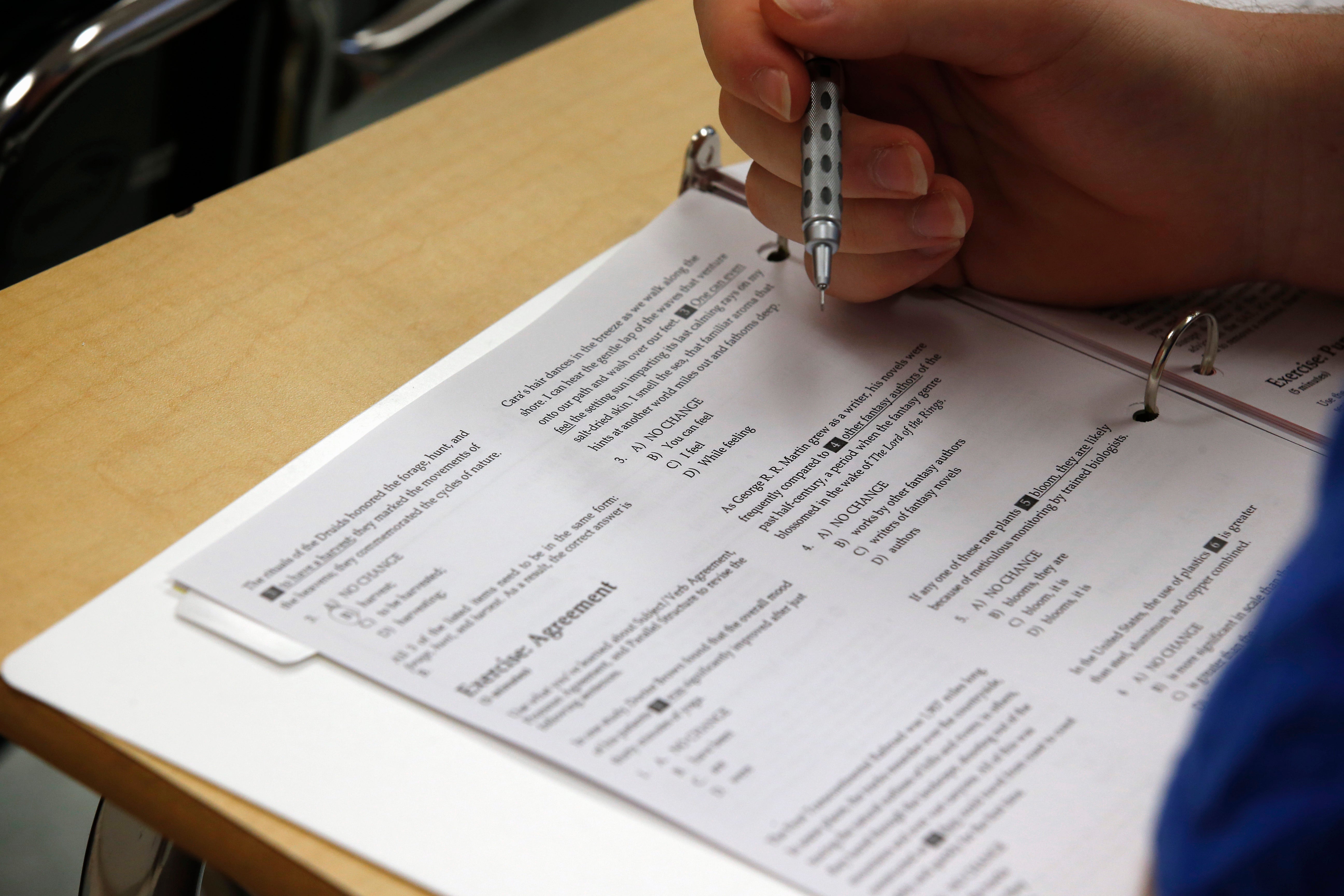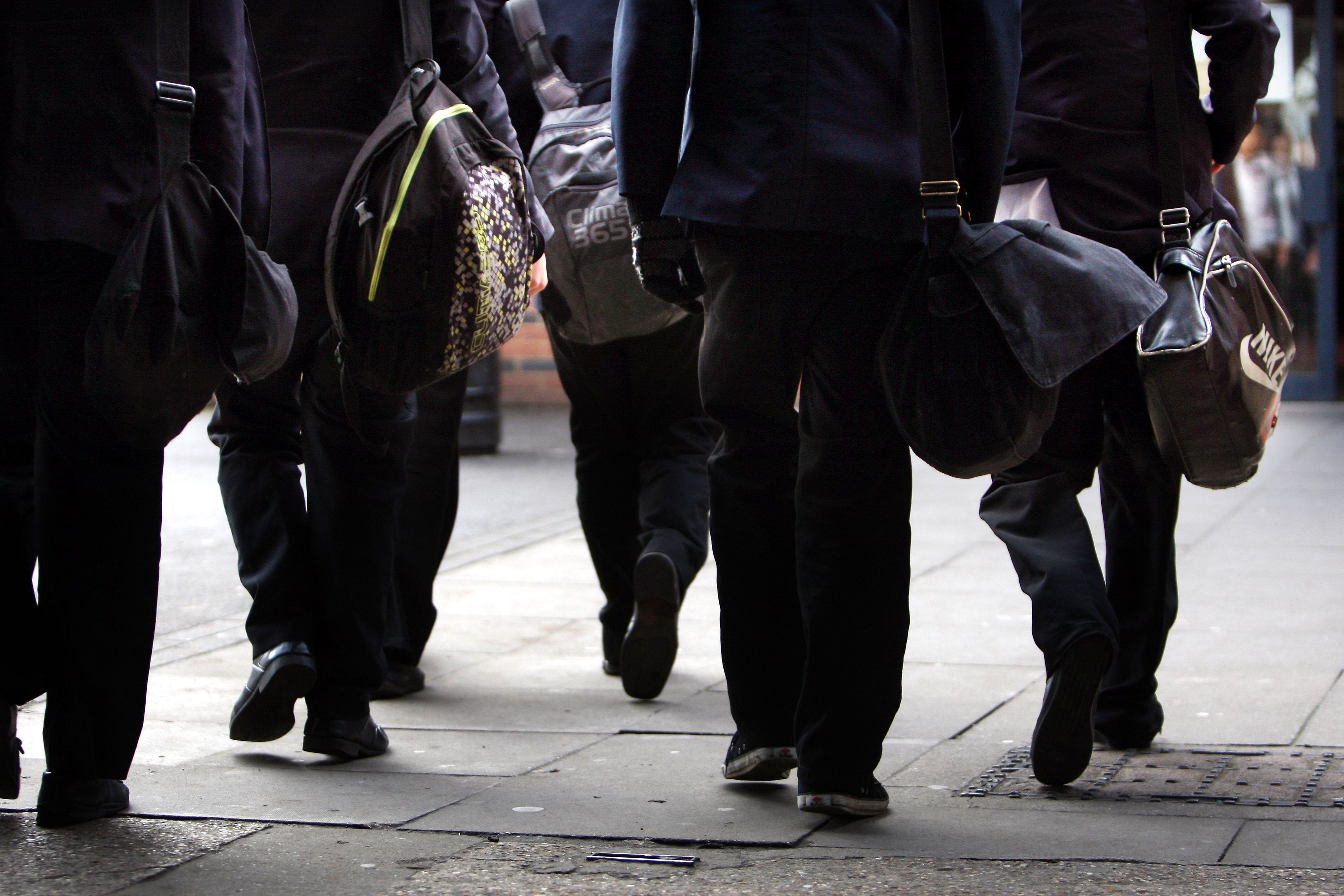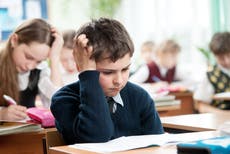Minister to look at SATs paper concerns after pupils left in ‘tears’
Hundreds of parents and teachers complained online that last week’s reading exam was too difficult

Your support helps us to tell the story
From reproductive rights to climate change to Big Tech, The Independent is on the ground when the story is developing. Whether it's investigating the financials of Elon Musk's pro-Trump PAC or producing our latest documentary, 'The A Word', which shines a light on the American women fighting for reproductive rights, we know how important it is to parse out the facts from the messaging.
At such a critical moment in US history, we need reporters on the ground. Your donation allows us to keep sending journalists to speak to both sides of the story.
The Independent is trusted by Americans across the entire political spectrum. And unlike many other quality news outlets, we choose not to lock Americans out of our reporting and analysis with paywalls. We believe quality journalism should be available to everyone, paid for by those who can afford it.
Your support makes all the difference.The schools minister has pledged to look at concerns last week’s SATs exams were too difficult amid claims a paper left some year 6 pupils in “tears”.
Nick Gibb said he does not want the exams, which are taken by 10- and 11-year-olds in England, to be “too hard” as that is “not the purpose” of the assessment.
His comments come after hundreds of parents and teachers complained online that last week’s reading exam was too difficult and a headteachers’ union said some staff also struggled “to understand the questions”.

When asked about parents’ concerns over the difficulty of SATs, Mr Gibb said: “I’ve not seen the paper yet. I’ll look at it next week when it’s available.
“The Standards and Testing Agency have tested this test before in tests before the pandemic, they tested it last year with a large group of children, they monitored the response of those children to the test, to the questions, they found that 85 per cent enjoy taking the test.
“But we will look at this. I will certainly look at this because I know that there has been concern expressed by some schools.”
SATs, or Standard Assessment Tests, are used to measure children’s English and maths skills in year 2 and year 6, and consist of six 45-minute papers.
Kerry Forrester, a head teacher at a Cheshire primary school, wrote to her local MP expressing concern about the “negative impact” that the exams have had on the “mental health and wellbeing” of her pupils.
In a letter she shared on Twitter, Ms Forrester said that this year had seen “the most negative impact on our children that we have ever experienced”.

“Tears flowed from our most capable readers and stress levels rose amongst all others,” she said, adding that “this was the most challenging reading test I have seen in my 29 years as a teacher”.
The National Association of Head Teachers (NAHT) has expressed concerns over last week’s SATs reading paper and said it plans to raise the issue with exams regulator Ofqual and the Standards and Testing Agency.
Sarah Hannafin, the union’s head of policy, said members had reported that the difficulty of the reading paper “was beyond previous tests”, left children upset, and some staff struggled to understand the questions.
One teacher tagged education secretary Gillian Keegan in a Twitter post that read: “Today’s SATs Maths Reasoning paper was the hardest I have ever seen in 20 years of teaching Y6.
“After 2 lockdowns, why would you inflict this on 10- and 11-year-olds destroying their confidence and sending them to high school feeling like failures? Why?”
Last Friday, the Department for Education (DfE) said “the tests are designed to be challenging” to measure attainment across the ability range.
Addressing the fresh concerns about the SATs exams, Mr Gibb told journalists on Monday: “We have psychometricians and practising teachers who put a lot of effort and time into making sure these tests are right for children.
“They do have to test a range of ability to make sure that we can show what proportion of children are exceeding the standard and so on.
“But we don’t want these tests to be too hard for children. That’s not the purpose.
“The purpose is to test the range of ability and the Standards and Testing Agency is charged with making sure that these tests are appropriate for this age group.”
Last week, Kerry Forrester, a headteacher at a Cheshire primary school, expressed concern about the “negative impact” of the SATs exams on the “mental health” of her pupils and she said some were reduced to tears.
James Bowen, assistant general secretary at the NAHT, said: “We are pleased that the government will be looking at what happened with the reading test this year.
“We have had clear feedback from school leaders that this year’s paper was not pitched appropriately for a large proportion of pupils and even highly proficient readers struggled with it.
“It is essential that test papers are accessible for the large majority of pupils. We need to remember that these are 10- and 11-year-olds and the last thing we need are papers that leave them feeling demotivated and dejected.”
Geoff Barton, general secretary of the Association of School and College Leaders (ASCL), said: “We welcome Nick Gibb’s commitment to look at the concerns raised over the Key Stage 2 reading paper.
“We’ve received a lot of feedback that this paper was unnecessarily difficult and that it left children distressed and teachers very anxious about the impact on their pupils.”
He added: “Key stage 2 tests are not supposed to be some sort of gruelling rite of passage, but an accountability measure to check on attainment at the end of key stage 2.”



Join our commenting forum
Join thought-provoking conversations, follow other Independent readers and see their replies
Comments